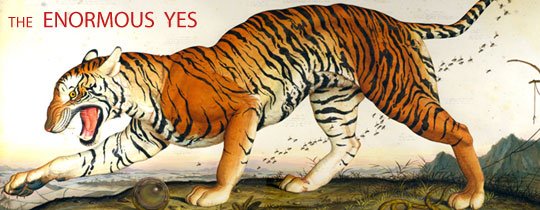 As you can see from the picture on the left, the major impediment to buying, let alone being seen to read, The Other Hand by Chris Cleave is that cover: it's fantastically awful, resembling a self-actualisation manual or a lachrymose memoir about how the author was kept in a cupboard as a baby, boo hoo. What's worse, I seem to have bought a special Waterstone's-only cover. The paperback in Amazon has much the better cover; and don’t let’s even mention the American version. But with that spleen-venting out of the way, what's it actually about?
As you can see from the picture on the left, the major impediment to buying, let alone being seen to read, The Other Hand by Chris Cleave is that cover: it's fantastically awful, resembling a self-actualisation manual or a lachrymose memoir about how the author was kept in a cupboard as a baby, boo hoo. What's worse, I seem to have bought a special Waterstone's-only cover. The paperback in Amazon has much the better cover; and don’t let’s even mention the American version. But with that spleen-venting out of the way, what's it actually about?
I'm not allowed to say. The blurb goes to some length to convince the potential reader that we're talking about a once-in-generation story about which nothing can be revealed. Sceptre, the publishers, have tried to insist that reviewers refrain from giving the game away. On the inside cover, we have a personal letter from Cleave's editor, saying that this is a truly superb and original novel, comparable to Cloud Atlas, Schindler's List and Life of Pi. That trifecta had me snagged.
The novel is narrated in alternate chapters by Little Bee, a Nigerian refugee who's spent the first two years of her English life in a refugee centre. She's fled the obscene event that's killed her family. Finding out the true name of this horror gives the book it's narrative drive. Coming from the opposite end is Sarah, a magazine editor married to Andrew, an op-ed writer suffering depression. Somehow they're connected to Little Bee:
"It started on the day we first met Little Bee, on a lonely beach in Nigeria. The only souvenir I have of that first meeting is an absence where the middle finger of my left hand used to be. The amputation is quite clean. In place of my finger is a stump, a phantom digit that used to be responsible for the E, D and C keys on my laptop."That paragraph gives some indication of the mastery with which Cleave set the story in motion. He voices Little Bee beautifully and uncondescendingly and threads her story with Sarah's beautifully. There are some amazingly powerful scenes. Andrew's funeral at the beginning of the book is unbearable, the unendurable tension of the original beach scene (not dissimilar in effect to Ian McEwan's Enduring Love and that bravura bit of business with the balloon), the pivotal Batman disappearance scene in Richmond Park; the final reckoning on another African beach: all these are written with a flinty prose that stays out of the way of the story's lurching momentum.
I'm not at all sure that the hype does this novel any great favours. It's not remotely like the books it's been so compared to. But it is a very tense book, intensely cinematic. Clearly I’m going to have to read Incendiary now (in which the old Arsenal stadium is blown up by terrorists. Bloody Al Quaeda: can’t they do their research?)





2 comments:
Wait! What happened to Highbury? I was planning on spending my twilight years in the Clock End Retirement Village & Spa.
Oh, books, you say?
Being a vampire is not what it seems like. It’s a life full of good, and amazing things. We are as human as you are.. It’s not what you are that counts, but how you choose to be. Do you want a life full of interesting things? Do you want to have power and influence over others? To be charming and desirable? To have wealth, health, and longevity? contact the vampires creed today via email: Richvampirekindom@gmail.com
Post a Comment